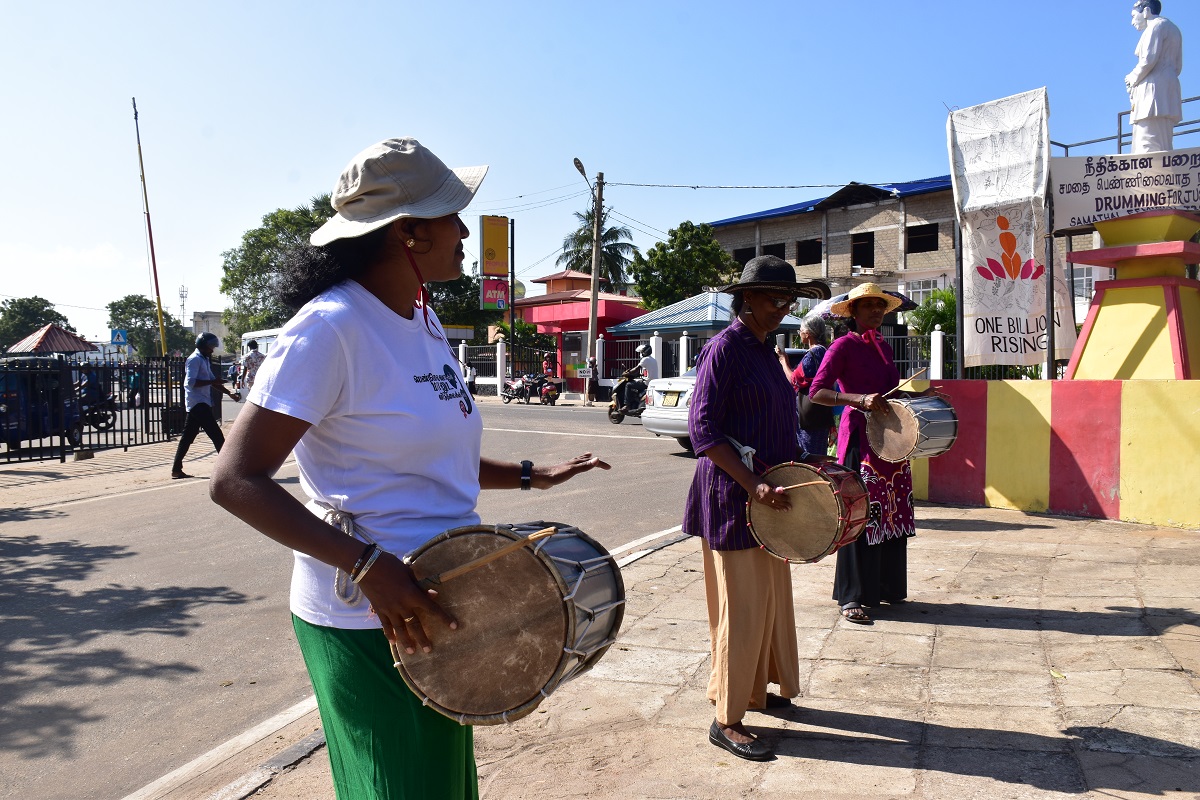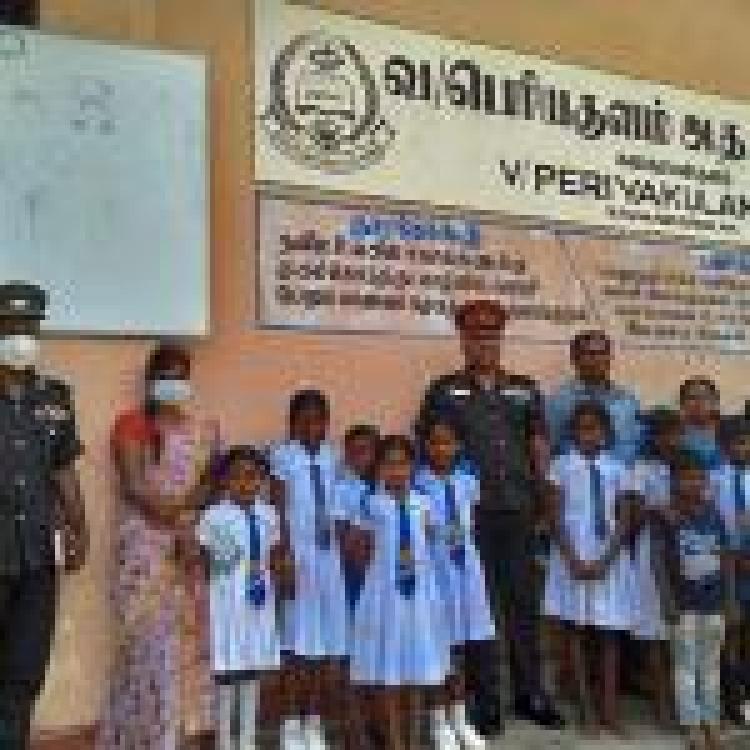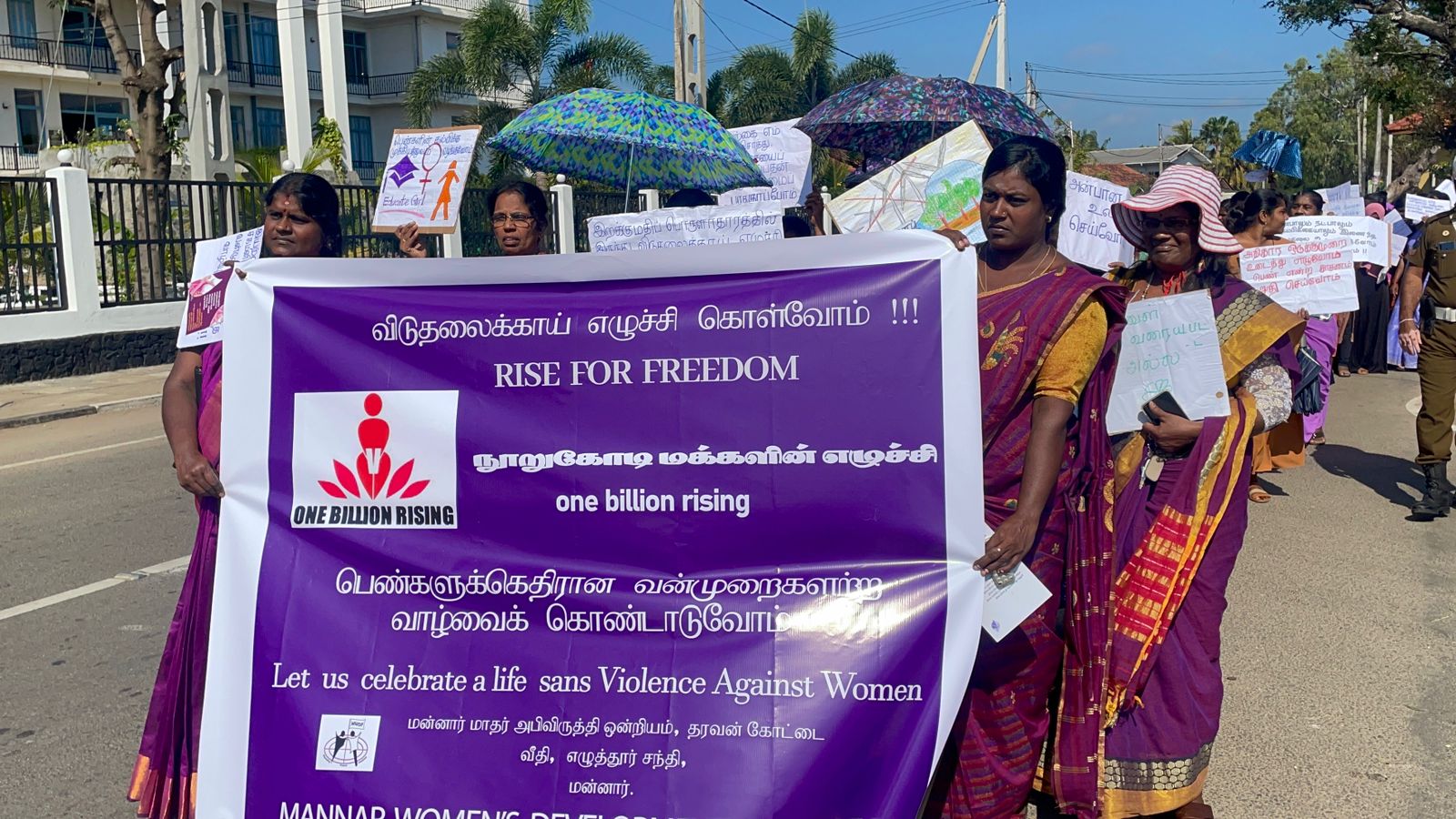
Mannar's Women Development Federation organised a march in support of 'One Billion Rising', the biggest mass action to end violence against women.
Women across the district participated in the march which made its way through Mannar and ended in front of the Mannar district Secretariat. During the procession, drums were played and members sang songs promoting women's rights. More than 100 women participated in the march, a mural was also painted to mark the event.
The procession is part of a wider awareness campaign called "One Billion Rising". One Billion Rising is the biggest mass action to end violence against women (cisgender, transgender, and those who hold fluid identities that are subject to gender-based violence) in human history. The campaign, which launched on Valentine’s Day 2012, began as a call to action based on the staggering statistic that 1 in 3 women on the planet will be beaten or raped during her lifetime. With the world population at 7 billion, this adds up to more than one billion women and girls.
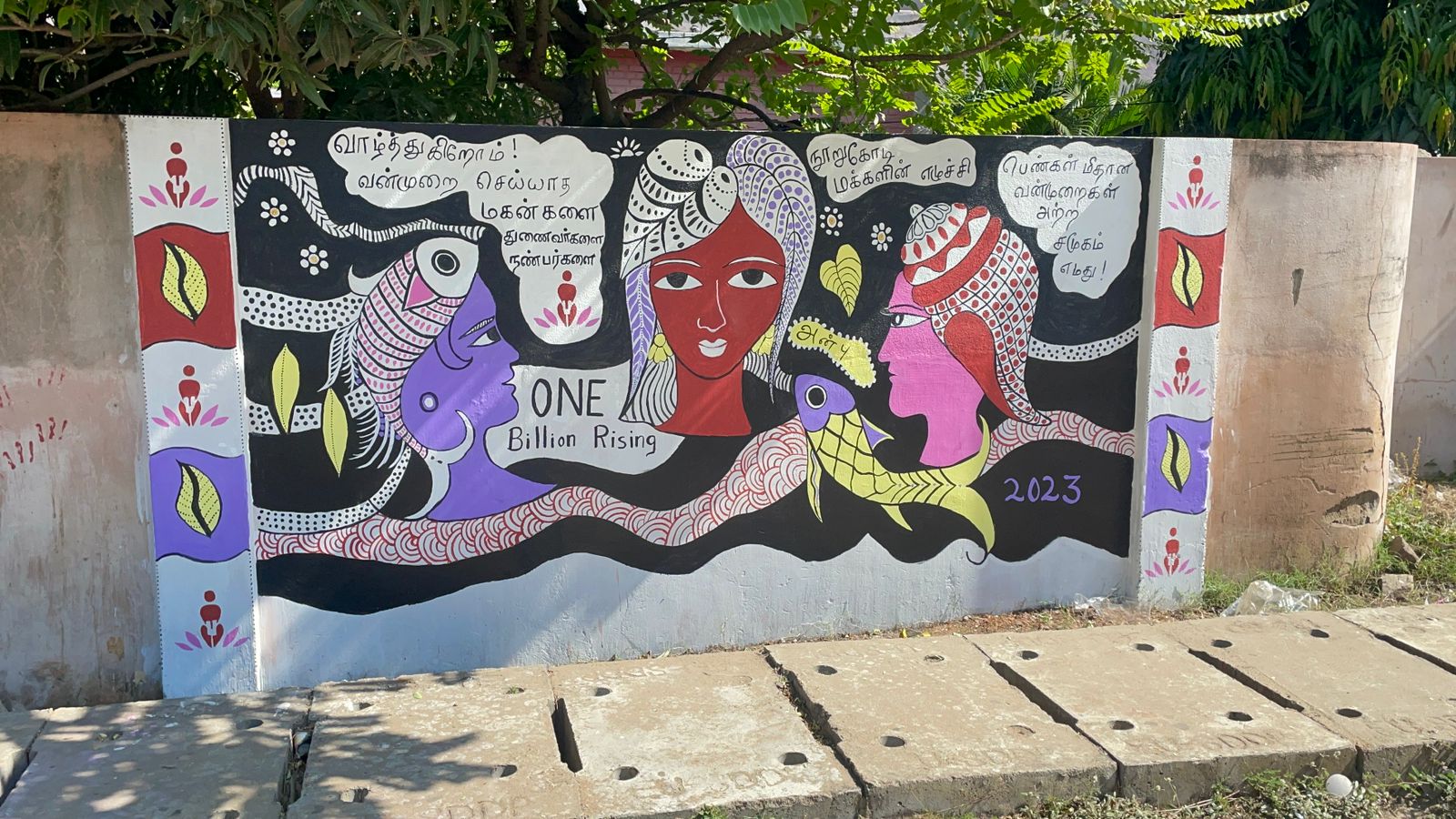
This year's theme was "Rise for Freedom", which aimed to foster a culture committed to
End violence towards women, gender nonconforming and gender-expansive people
End violence towards the earth
Dismantle patriarchy
Cultivate care, community, trust and compassion
Uphold cooperation rather than competition,
Refuse outright the inequality of wealth
Place people over profit
Actively listen
Know our true history
Make apologies and reparations
Honour the artists, visionaries, seekers, storytellers, shamans, poets, healers
Celebrate diversity
Embrace collective energy
Practice solidarity
Embody the power of art and dance
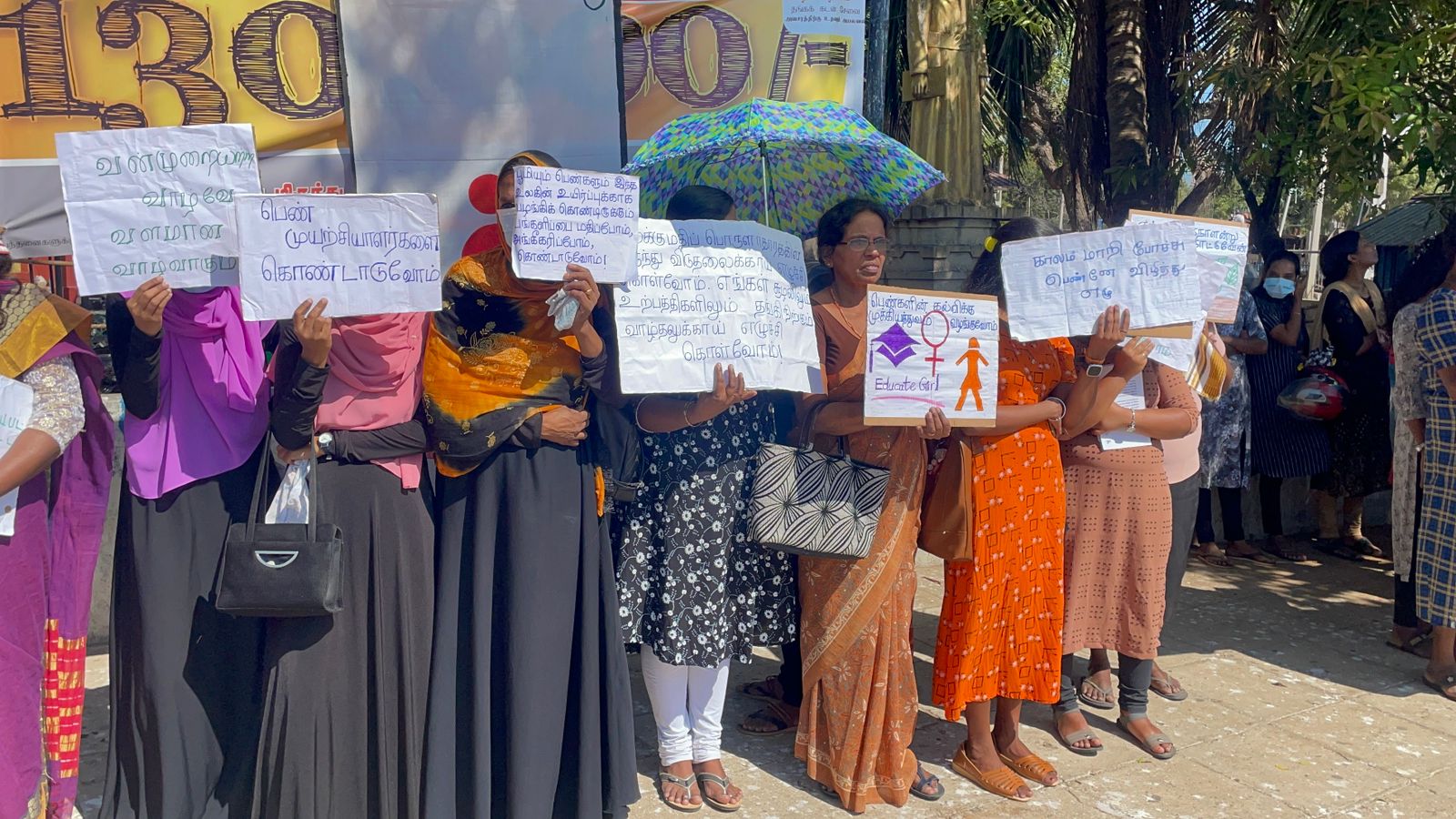
No Trials, Only Tribulations for Tamil Victims of Sri Lanka’s Conflict-related Sexual Violence',
A report by People for Equality and Relief in Lanka (PEARL) published in 2022 examined how Sri Lanka has failed to punish perpetrators of conflict-related sexual violence against Tamils. Over a decade has passed since the end of the armed conflict yet the Sri Lankan military continues to occupy vast swathes of the Tamil homeland. Intense militarisation continues to be a pressing issue for the Tamil population. Tamil women and girls living in the still heavily militarized North-East — where, at the peak of its militarization, one district had one Sri Lanka Army (SLA) soldier for every two civilians — are at high risk for sexual violence, exploitation, and harassment
The report, 'No Trials, Only Tribulations for Tamil Victims of Sri Lanka’s Conflict-related Sexual Violence', focuses on emblematic cases where Sri Lanka has not pursued legal action against Sri Lankan perpertrators despite credible evidence of international crimes, including rape and other forms of sexual violence.
"Female rape victim-survivors and the families of murdered rape victims rarely, if ever, saw justice in Sri Lanka’s highly politicised courts, which took their cue from successive presidents who almost exclusively protected the security forces rather than Tamil victims and victim-survivors," the report notes.
The US-based advocacy organisation also highlight that Tamil women and girls living in the heavily militarised North-East are at a "high risk for sexual violence, exploitation, and harassment."
In a press release, PEARL's Executive Director Archana Ravichandradeva said:
“Tamil rape survivors and the families of murdered rape victims face the threat of reprisals and relentless impunity in Sri Lanka’s justice system."
“International justice is the only recourse available for Tamil victims and survivors of conflict-related sexual violence and other international crimes. The international community must not waver or delay prosecutions any further.”
Throughout the report, PEARL highlights Sri Lanka's unwillingness to investigate conflict-related sexual violence and other war crimes perpetrated by the state. Due to the state's lack of willingness, PEARL calls on the international community to take swift action to bring justice for Tamil victims.

